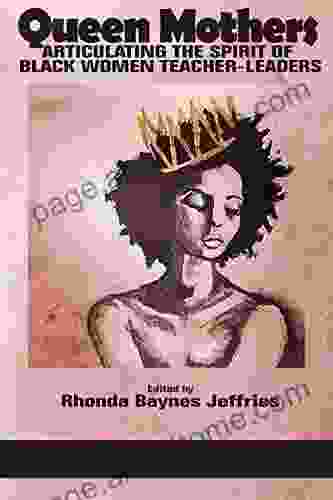TV Crime Drama: A Genre-Defining Analysis

4.8 out of 5
| Language | : | English |
| File size | : | 1378 KB |
| Text-to-Speech | : | Enabled |
| Screen Reader | : | Supported |
| Enhanced typesetting | : | Enabled |
| Print length | : | 192 pages |
In the vast expanse of television genres, crime dramas have emerged as an enduring and captivating force. From the gritty realism of police procedurals to the psychological complexities of crime thrillers, this genre has captivated audiences with its ability to explore the darkest corners of human nature, delve into the mysteries of the criminal mind, and shed light on the complexities of justice and morality.
Defining the Genre
At its core, a crime drama is a narrative that revolves around a crime or series of crimes. It often follows the efforts of law enforcement officials, detectives, or forensic scientists as they investigate and solve these crimes. However, crime dramas extend beyond mere whodunit plots; they delve into the psychological motivations of both the perpetrators and the victims, examining the social and cultural factors that contribute to criminal behavior.
Iconic Tropes and Conventions
Over the years, crime dramas have developed a number of iconic tropes and conventions that have become synonymous with the genre. These include:
- The Detective Figure: The central character in many crime dramas is the detective, a charismatic and often brooding figure who possesses an uncanny ability to solve seemingly unsolvable crimes. Think of characters like Sherlock Holmes, Jessica Fletcher, and Olivia Benson.
- The Procedural Format: Many crime dramas adopt a procedural format, where each episode focuses on a self-contained crime that is solved by the end of the hour. This format allows for a high degree of variety and keeps the audience engaged with a constant stream of new cases.
- Psychological Depth: Crime dramas often explore the psychological motivations of both the criminals and the victims. This psychological depth adds a layer of complexity to the narrative, making the characters more relatable and the crimes more emotionally resonant.
- Social Commentary: Crime dramas frequently use their storylines to explore social and cultural issues, such as poverty, inequality, and corruption. By examining the root causes of crime, these shows shed light on the broader societal problems that contribute to criminal behavior.
The Enduring Appeal
So what is it about crime dramas that has captivated audiences for decades? Here are a few reasons:
- Escapism and Suspense: Crime dramas offer an escape from reality, allowing viewers to indulge in the excitement and mystery of solving crimes without having to face the real-world consequences.
- Character Development: The best crime dramas feature well-developed characters with complex motivations and backstories. Audiences become invested in these characters and their personal lives, creating a deeper emotional connection to the stories.
- Social Relevance: Crime dramas often tackle important social issues, providing a platform for discussion and debate. By shedding light on these issues, crime dramas can raise awareness and promote social change.
- Intellectual Stimulation: Crime dramas require viewers to think critically and engage with the material. They present puzzles and mysteries that challenge the audience's intellect and leave them feeling satisfied when they finally solve them.
TV crime dramas have proven to be a resilient and captivating genre, captivating audiences with their intricate plots, psychological depth, and social commentary. Whether you're a fan of procedural dramas, crime thrillers, or anything in between, there's a crime drama out there for everyone. So next time you're looking for a gripping and thought-provoking viewing experience, turn to the enigmatic world of TV crime drama.
4.8 out of 5
| Language | : | English |
| File size | : | 1378 KB |
| Text-to-Speech | : | Enabled |
| Screen Reader | : | Supported |
| Enhanced typesetting | : | Enabled |
| Print length | : | 192 pages |
Do you want to contribute by writing guest posts on this blog?
Please contact us and send us a resume of previous articles that you have written.
 Book
Book Novel
Novel Page
Page Chapter
Chapter Text
Text Story
Story Genre
Genre Reader
Reader Library
Library Paperback
Paperback E-book
E-book Magazine
Magazine Newspaper
Newspaper Paragraph
Paragraph Sentence
Sentence Bookmark
Bookmark Shelf
Shelf Glossary
Glossary Bibliography
Bibliography Foreword
Foreword Preface
Preface Synopsis
Synopsis Annotation
Annotation Footnote
Footnote Manuscript
Manuscript Scroll
Scroll Codex
Codex Tome
Tome Bestseller
Bestseller Classics
Classics Library card
Library card Narrative
Narrative Biography
Biography Autobiography
Autobiography Memoir
Memoir Reference
Reference Encyclopedia
Encyclopedia Woodrow Phoenix
Woodrow Phoenix Lori Wick
Lori Wick Ruby Goldwin
Ruby Goldwin Joy Ghosh
Joy Ghosh Otto Friedrich
Otto Friedrich Yuri Kumagai
Yuri Kumagai Paul Isaacs
Paul Isaacs Sara Collings Hansen
Sara Collings Hansen Tom Dalzell
Tom Dalzell Susan Zeppieri
Susan Zeppieri Phil Baillargeon
Phil Baillargeon Rui Diogo
Rui Diogo Simon Cozens
Simon Cozens Vince Clews
Vince Clews Steve Wilkens
Steve Wilkens Peter Mt Shasta
Peter Mt Shasta Peter Decherney
Peter Decherney Oliver J Altera
Oliver J Altera Pradeeka Seneviratne
Pradeeka Seneviratne Jessica Weisberg
Jessica Weisberg
Light bulbAdvertise smarter! Our strategic ad space ensures maximum exposure. Reserve your spot today!

 Fredrick CoxUnveiling the Secrets of Tai Chi Chian Ho Yin: A Transformative Journey to...
Fredrick CoxUnveiling the Secrets of Tai Chi Chian Ho Yin: A Transformative Journey to... Quentin PowellFollow ·4.8k
Quentin PowellFollow ·4.8k Stephen KingFollow ·9.7k
Stephen KingFollow ·9.7k Jacques BellFollow ·12.6k
Jacques BellFollow ·12.6k Logan CoxFollow ·17.4k
Logan CoxFollow ·17.4k Joseph HellerFollow ·15k
Joseph HellerFollow ·15k Roald DahlFollow ·17.5k
Roald DahlFollow ·17.5k Ruben CoxFollow ·4.3k
Ruben CoxFollow ·4.3k Beau CarterFollow ·12.2k
Beau CarterFollow ·12.2k

 W. Somerset Maugham
W. Somerset MaughamNourishing Delights: Easy Recipes Without Salt, Oil, or...
Are you looking for...

 Zachary Cox
Zachary CoxThe Art of Kitchen Fitting: A Masterful Guide to Culinary...
The kitchen, the heart of...

 Elliott Carter
Elliott CarterArticulating the Spirit of Black Women Teacher Leaders:...
In the tapestry of education,...

 James Gray
James GrayThe Complete Guide to Arduino: Your Journey to...
: Unveiling the...
4.8 out of 5
| Language | : | English |
| File size | : | 1378 KB |
| Text-to-Speech | : | Enabled |
| Screen Reader | : | Supported |
| Enhanced typesetting | : | Enabled |
| Print length | : | 192 pages |














